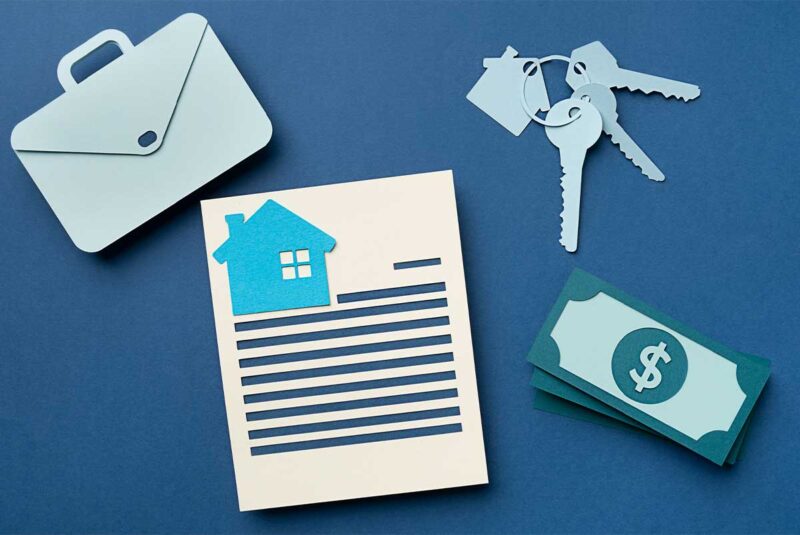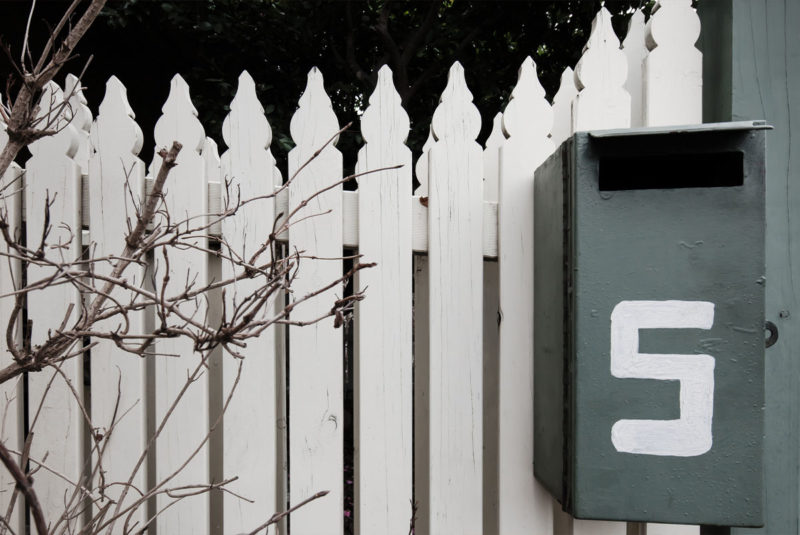Ready To Buy a Home?
Get Approved to Buy a Home
Rocket Mortgage® lets you get to house hunting sooner.
Once you start considering buying a home, the obvious next step is researching and creating a plan. And you quickly find one phrase that seems to proliferate in your search results like a financial-jargon bacteria: interest rate.
Interest rates are one of the most important aspects of the mortgage process. They can have a huge effect on the overall cost of buying a house and on how high monthly payments are. The idea is to get the lowest interest rate and save as much as possible.
But how do you get a good interest rate?
A mortgage float-down option is one way to get lower rates. Read on to learn more about float-down loans and how they may help you achieve your home buying goals.
A Float-Down Option, Defined
Explore Your Mortgage Options
What are you looking to do?
Mortgage interest rates can be volatile and may change between when you make an offer on a home and when your loan is approved. Even a minor change in an interest rate could increase the overall cost of buying a home, which makes locking in the rate a wise decision.
But what if interest rates drop? You could find that you’re paying more than you need to for a mortgage, which can be frustrating in the short term and expensive in the long term.
That’s where a float-down option comes in.
A float-down option lets you keep your rate locked if market interest rates go up, but potentially get a lower interest rate when market rates go down.
Unfortunately, not all lenders offer float-down options and there may be added fees to contend with. Learning more about how floating and locked interest rates compare can help you prepare to make the best decision when it’s time to make an offer.
Floating rate vs. Locked rate
First, it’s helpful to understand the difference between a floating rate and a locked rate. A mortgage rate lock is an agreement a borrower makes with a lender that the lender won’t change the interest rate before closing, as long as the borrower’s financial situation doesn’t change significantly before closing.
Floating rates are a type of mortgage rate lock loan that adds a stipulation to that agreement that lets the rate go down if interest rates drop.
What does a float-down option look like?
With a float-down option, you agree to pay a fee, usually ranging from 0.5% – 1% of loan value or $500 – $1,000 for every $100,000 that you borrow.
When you pay the fee, the lender agrees they will lower your interest rate if interest rates go down while your loan is being processed. They also agree not to raise your interest rate if interest rates go up.
How does a float-down option work?
Let’s say you have an offer accepted on a house on Friday and next Tuesday the stock market crashes and a week later the Federal Reserve lowers interest rates by 0.5% to avoid a recession. Bad news for investors, but potentially good news for you if you have a float-down option.
Here’s why.
Let’s assume you’re taking out a $250,000 30-year fixed-rate mortgage. When you get the float-down option, your interest rate is 4.5%. That would make your monthly payment $1,267 a month and you’d pay $206,017 in interest over the life of the loan.
But what if rates drop by 0.5%?
If you could get that same loan at 4% interest, you’d only pay $1,194 a month and you’d pay $179,674 in interest. That saves you $73 a month, $876 a year and $26,343 over the life of the loan.
What are the limits of a float-down option?
First, the lender will usually specify that interest rates have to drop by a significant amount, usually between 0.25% – 1% before the float-down option kicks in.
Also, neither a rate lock nor a float-down loan option will protect you from interest rate drops that are connected to your finances.
For example, you have your home offer accepted on a Friday and over the weekend you get in a car accident while driving your boss’s car. Suddenly you’ve lost your job and you’re using your credit card to cover car repairs, medical bills and legal fees.
This may be an extreme example, but sudden changes in employment or debt spikes may justify the lender raising the interest they charge you for the mortgage loan.
Rate locks involve market volatility, not personal finances, so you should continue best practices for keeping your credit score high and debt-to-income (DTI) ratio low.
Advantages of a Float-Down Loan
The biggest advantage of any rate lock is security. Interest rates jumping too high before you close could cost you a lot of money or even cause you to have to back out. But if you have a set locked rate, you don’t have to worry about plans falling through.
A float-down loan is even more advantageous because you get the security of a locked rate during rate hikes, but you can take advantage of rate drops. It provides the best parts of gambling and playing it safe.
Disadvantages of a Float-Down Loan
One big problem with floating rates is you may not be able to get one. Many lenders don’t offer this option. Lenders who do offer them may charge fees for float-down options.
Also, if the fees outweigh how much you save from the float-down, you could lose money. And you can’t be sure rates will drop. Depending on how much the float-down fee is and interest rate behavior trends, a standard rate lock may be a better option.
Lenders also don’t adjust the loan rate automatically when the interest rates drop. You need to exercise your float rate option and advise the lender you want your rate to drop. This means you might miss out if you’re not paying attention to interest rate drops.
Steps to Getting a Float-Down Loan
If you decide a float-down option is the best for your situation, you may have to take a few steps to ensure you get it. Floating rates are usually more advantageous for the borrower than the lender – so the ball is in your court.
The first step is to get organized. Research lenders and figure out which ones offer a float-down option and what their fees are. You also want to consider lender approval and what steps you need to take to increase your chance of getting approved.
Another important consideration is the rate lock period. Float-down loans require that you close before the lock period is over, so ensure the rate lock period provides enough time to deal with any financial hiccups. The length of the rate lock depends on your lender.
Alternatives to a Float-Down Mortgage
If your lender doesn’t offer a float-down option, it doesn’t mean you’re thrown to the mercy of the interest rate seas. There are other ways to take advantage of low interest rates and not get stuck with a high one.
Adjustable-rate mortgage
If you really want to avoid getting stuck with a high rate, you can get an adjustable-rate mortgage (ARM). Unlike a fixed-rate mortgage where your rate is locked for the length of your loan, an ARM offers a lower rate for an introductory period, usually ranging from 3 – 10 years.
After that, your interest rate resets periodically – almost like an automatic refinancing. If interest rates were high when you first took out your loan, you could benefit from a rate drop after the introductory period ends.
The downside is that your rates could also rise significantly when the introductory period ends. This could work for you only if you plan to live in your home for a few years. If you stay longer than the introductory period, it could cost you more in the long run.
Refinancing
Refinancing is basically what it sounds like: financing your home with a new mortgage. The idea is to refinance when interest rates are lower to get out of the high interest rate you have. If you buy when rates are high or can’t get a float-down, refinancing may be a solution.
Just make sure your lender doesn’t charge a prepayment penalty or you might wind up losing more than you’d gain from refinancing.
Float-Down to the Lower Rate Oasis
Float-down loans can be a powerful tool to make home buying more affordable. But they’re just one part of the process. Be vigilant with your finances and set yourself up for success to make getting a mortgage smoother and more affordable – with or without a float-down option.
Get approved to buy a home.
Rocket Mortgage® lets you get to house hunting sooner.
The Short Version
- A mortgage float-down option keeps your mortgage interest rate from rising but lets you take advantage of lower rates
- Float-down options may involve fees or not be available at all, making a standard rate lock advantageous
- There are other ways to lower your rate, even after closing, such as refinancing and adjustable-rate mortgages (ARM)




